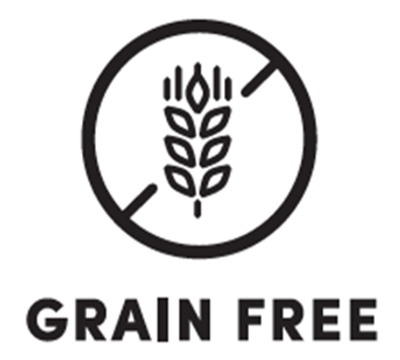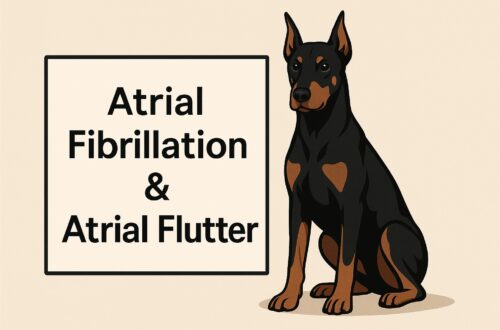This week you may have seen the United States Food & Drug Administration’s (FDA) report with information about more than one dozen dog food brands that have been associated with dilated cardiomyopathy (DCM) in dogs. You can view the complete report here. Understandably, many pet owners are concerned about this information, and veterinarians across the country have been inundated with questions about their pet’s diet.
I’ll say this. I’m very happy families are finally asking nutrition-related questions of veterinarians. I just wish it didn’t take a news event like this for them to finally seek the advice of medical experts instead of untrained pet food store employees and many breeders with no nutritional background. With that being said, let’s dive into this important topic. Happy reading!

What’s the background?
Although this topic only came into the public eye in July 2018, there have been reports of DCM in dogs eating non-standard diets for the past decade. The implicated diets are:
- Grain-free
- Vegetarian/vegan
- Home-prepared but not formulated by a board-certified veterinary nutrition specialist
- Composed of an exotic ingredient.
Board-certified veterinary nutrition specialist Dr. Lisa Freeman has termed these diets “BEG” diets – boutique companies, exotic ingredients (i.e. alligator, wild boar, ostrich, etc.), and grain-free diets. This is an important distinction because early reports implicated only grain-free diets. However, we know it’s not just grain-free diets about which we need to know more.

Some dog breeds are at risk for diet-responsive DCM, most notably Golden retrievers, Cocker spaniels, Newfoundlands, Irish wolfhounds, and Saint Bernards. The incidence of DCM in these breeds appears to be increased when they eat BEG diets. Furthermore, very young dogs and those dogs who don’t have histories of an inherited type of DCM but who eat BEG diets also appear to have an increased incidence.
What do we know?
The FDA analyzed 515 reports about dogs received between 1 January 2014 and 30 April 2019. The FDA’s Center for Veterinary Medicine undertook a multifaceted and collaborative approach to their investigation, working with the Veterinary Laboratory Investigation & Response Network (Vet-LIRN), board-certified veterinary cardiologists, and board-certified veterinary nutrition specialists.

The FDA analyzed product labels to determine whether a diet was grain-free and whether the products contained peas, other lentils including chickpeas and beans, or potatoes (including sweet potatoes). More than 90% of products were “grain-free”, and 93% had peas and/or lentils. A far smaller proportion contained potatoes. Animal protein sources in the reported diets varied widely, and many diets contained more than one protein source. The most commonly reported proteins were chicken, lamb, and fish. Some diets contained exotic proteins, including kangaroo, bison, and duck. No one animal protein source was predominant.
Several cases reported to the FDA involved dogs with low taurine levels. Taurine is a conditionally-essential amino acid, and main sources include meat, fish, and dairy. Vegetarian foods don’t provide sufficient quantities, and taurine supplementation is often needed for these types of diets. Taurine deficiency is well-documented as potentially contributing to the development of DCM. As mentioned earlier, there are reports of dog breeds that aren’t usually affected by DCM. Many of these patients had documented normal taurine levels. Based on this information, board-certified veterinary nutrition specialists and cardiologists have categorized three distinct populations of DCM patients:
- Primary DCM in genetically predisposed breeds and no relationship to diet
- Diet-associated DCM with taurine deficiency
- Diet-associated DCM with normal taurine levels
We’re still learning about the importance of taurine deficiency in BEG diets. We need to better understand if and how taurine metabolism has a role in these reports of canine dilated cardiomyopathy.
What should you do?
Research is ongoing around the globe with board-certified veterinary nutrition specialists and cardiologists ardently working to get to the bottom of this issue to best help our canine friends. Until we know more, here are some common sense recommendations pet owners can confidently follow right now:
- For dogs requiring special diets due to various health conditions, they should be fed diets that meet standards set by the Association of American Feed Control Officials (AAFCO).
- For healthy dogs, feed them commercial diets with standard ingredients like chicken, beef, rice, wheat, and corn.
- A board-certified veterinary nutrition specialist should formulate any homemade diet
- Patients living with DCM and eating BEG diets should be switched to diets that contain standard ingredients that meet AAFCO standards.
The World Small Animal Veterinary Association has a very helpful resource to help pet owners pick a healthy diet for their dog, and you can find it here. Families are also strongly encouraged to read WSAVA’s The Savvy Dog Owner’s Guide: Nutrition on the Internet.

Veterinarians should measure whole blood and plasma taurine levels in dogs with DCM being fed BEG diets. If dogs are found to have low or low-normal levels, they should take a taurine supplement. Echocardiography (heart ultrasound) should be performed to obtain baseline measurements, and then they should be serially reevaluated to assess response to taurine supplementation. Similarly, other dogs in the household eating the same diet should have echocardiography performed too.
Some dogs eating BEG diets have no clinical signs of DCM. Pet owners want to know if they should switch their dogs to a standard diet to prevent the development of DCM. According to Dr. Freeman, most dogs eating BEG diets are unlikely to develop DCM. However, given DCM is life-threatening, families may want to reconsider their pet’s diet until we know more. After all – with the exception of food allergies – grain-free and exotic ingredient diets afford no health benefits to our canine companions.
Pet owners should familiarize themselves with the clinical signs of DCM in an effort to identify this heart muscle disease early in its course. Clinical signs for which families should monitor are:
- Exercise intolerance
- Increased respiratory rate
- Coughing
- Collapse
- Fainting
- Blue/purple hue to tongues and gums
A veterinarian should evaluate as soon as possible any dog observed to have any of these clinical signs.
What if I need to report a problem?
The FDA wants to hear from pet owners who believe their dog has experienced an issue due to feeding a BEG diet. Families have options for reporting. They can work with their veterinarian to submit the necessary information or they can submit data directly to the FDA using their electronic Safety Reporting Portal. For more information, click here.
The take-away message about BEG diets and your dog…
For the majority of dogs, veterinarians don’t yet know what causes diet-associated DCM. Recent reports have raised concerns about feeding BEG diets to dogs. Research is ongoing, and we’re all anxiously awaiting new information from board-certified veterinary nutrition specialists and cardiologists. Until we know more, pet owners should seek the professional advice and guidance from veterinarians about their dogs’ diets.
To find a board-certified veterinary cardiologist, please visit the American College of Veterinary Internal Medicine.
To find a board-certified veterinary nutrition specialist, please visit the American College of Veterinary Nutrition.
Wishing you wet-nosed kisses,
CriticalCareDVM





